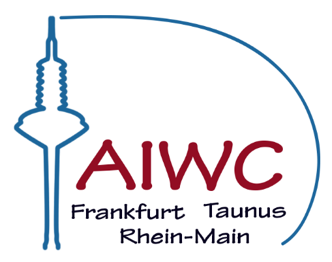Health Care - Emergencies, Pharmacies, Insurance, and Providers
Emergencies
First and foremost, the Emergency Number in Germany is: 112. Please dial it in the event of an emergency!! You can find a more comprehensive list of emergency numbers under:
https://www.angloinfo.com/how-to/germany/frankfurt/healthcare/emergencies/local-numbers
Generally, most hospitals in Germany will have an Accident and Emergency unit. However, smaller private hospitals might not have this facility. Be aware that emergency rooms in Germany may not operate the same way as in your home country - often, only ambulance arrivals are treated as true emergencies, and using the ER as a replacement for a visit to a doctor or specialist is not recommended. However, patients who arrive at a German hospital in an emergency situation will receive treatment, even if you are unable to show proof of health insurance. However, if you do not have any health insurance at all, your treatment is likely to be expensive.
Pharmacies
Pharmacies - in Germany, they are called, 'Apotheke' - may also be different from what you are used to in your home country. For example, in the US, many drugs and ointments are available as over-the-counter, meaning you can purchase the item without talking to a doctor or pharmacist. In Germany, you will usually need to describe your problem to a pharmacist, and they will recommend and provide a product if necessary. All pharmacies display the address of the nearest 24-hour pharmacy in their shop windows. Typically, pharmacies in your area will 'rotate' the 24-hour duties, so it's important to check your town newspaper or website to find out more.
Health Insurance
Germany has one of the best healthcare systems in Europe. There are two major types of health insurance in Germany: Private health insurance (Private Krankenversicherung) and Public health insurance (Krankenkasse). If you wish to pay into the government health insurance program (Krankenkasse), you have to do so within 3 months of your registration in Germany. If you fail to do so and your income is above a specific amount, you lose this entitlement and must choose private health insurance, incurring higher costs.
Government health insurance is mandatory for most employees. The standard public health insurance benefits are medical cover (including some regular cancer screenings), hospital cover, dental check- ups and some dental treatment, maternity cover and sickness benefit pay (Lohnfortzahlung) in case of longer term illness.
If you would like insurance coverage to supplement these government system benefits, you will want to purchase a policy from a German or international private health insurance company; for instance, if you would like access to and reimbursement of costs for a private doctor and a private room in hospital, homeopathy and other alternative treatment or higher dental reimbursements. Private health insurance naturally costs more than opting in to the public system, and the rates favor young, healthy people - and these rates go up over time. However, private health insurance may make sense, depending on your stage in life, or if your company reimburses the costs. Once you opt for private insurance or if your income is above the threshold of €55,200 gross per year, then you are not allowed to opt back to the public system.
For more information, please visit:
- https://www.expatica.com/de/healthcare/healthcare-basics/a-guide-to-german-health-insurance-693463/
- https://allaboutberlin.com/guides/german-health-insurance
Every member of the government health insurance scheme receives a card for medical and dental treatment. Be prepared to tell each doctors' office which type of insurance you have when making appointments, and to show your health insurance card upon arrival. Before going to a specialist or physical therapist, you need to go to your regular doctor and get a referral. The referral form is only valid for that quarter. You can check what quarter the referral is good for by looking at the top right corner. Physical therapy referrals are usually valid for up to 3 months.
For illnesses - if an illness exceeds two or three days (depending on the company), a doctor’s certificate will be required, stating the probable duration of absence caused by the sickness. A follow up certificate is required if the duration of absence is longer than previously stated. In cases of prolonged illness or disability, the employer continues to pay the full salary for up to 6 weeks (42 calendar days), beginning with the first day of illness or disability, in accordance with German law (Entgeltfortzahlungsgesetz).
The Main Taunus Kreis published a very interesting brochure about available doctors for the different languages. You can download the PDF file under:
